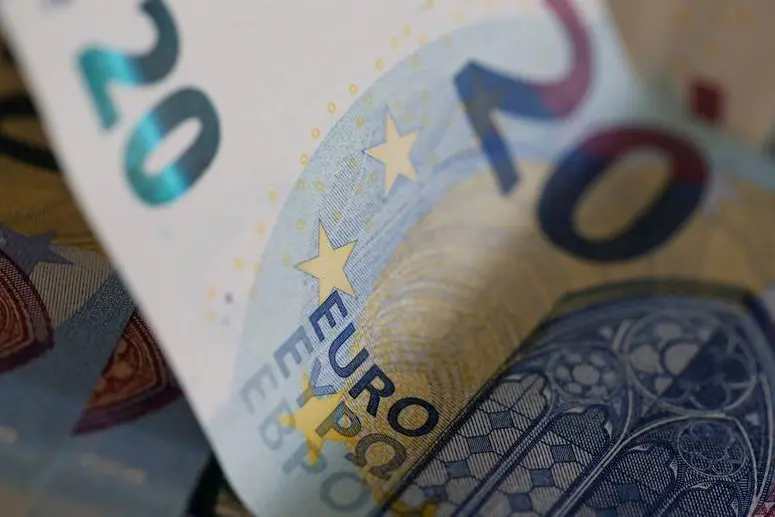PHOTO
By Edward Hadas
LONDON, July 4 (Reuters Breakingviews) - The euro is doomed.That claim was first made as soon as a European single currencywas officially suggested in 1970. Predictions of disaster havecome steadily ever since. The actual appearance of the currencyin virtual form in 1999, the euro zone banking crisis thatstarted in 2010, and now a new eurosceptic Italian governmenthave all spurred warnings of inevitable woe.
A new book by Ashoka Mody, EuroTragedy: A Drama in NineActs, presents the gloomy case particularly well. The Princetonprofessor marshals history, politics and economics to justifyhis title. (Full disclosure: The author asked for my comments ona draft of the book.)
As befits a tragedy, the hero of Modys drama has a fatalflaw. The euro was created before its proper time in history.The nation-states of Europe were not unified enough to take onthe responsibilities of a shared currency. Electoral loyaltieswere too national for a central fiscal authority, and there wasno democratically elected body to supervise the central monetaryauthority.
The historical inadequacy led to messy politicalcompromises. The mandate for the European Central Bank wasvague, controls on the fiscal deficits of member states wereineffective, and the risks of national banking in amultinational currency zone were studiously disregarded.
The messy politics led to bad economics. Mody argues thatthe rigid exchange rate amplified the differences betweenstronger and weaker economies. That case is controversial, butexcessive foreign lending to the banks and governments of weakereuro zone members definitely led to an existential crisis. Itonly ended when one of the initial political uncertainties, thepower of the European Central Bank, was resolved in 2012.
That step forward was possible because the ECB had thepolitical support needed to do whatever it takes to preservethe euro, in the words of Mario Draghi, its president. Thepolitics have become more doubtful since then. Italys DeputyPrime Minister Matteo Salvini, the most powerful politician inthe countrys new coalition government, is the greatest currentnemesis. But he is only slightly more hostile to the singlecurrency than many of his peers.
Mody sees little alternative to a painful unravelling ofthis doomed experiment the inevitability of classic tragedy.Having run the International Monetary Funds operations inIreland during that countrys 2010 banking crisis, he iscertainly well informed. However, his historical perspective istoo short. There are old and strong historic forces pushingtowards monetary unity.
Draghis step forward may have looked like an act of neardesperation, but it fits into a pattern that has endured foralmost three-quarters of a century. Since the end of the SecondWorld War, there has been uneven but steady progress towards amore unified European economy and shared politicalresponsibility.
The recent drive to unity was a response to chaos, but ithas many strong foundations. For two millennia there has been aEuropean history of ideas, art, science and religion. Thiscommon culture gave the world imperialism and industrialisation,among many other things.
A full European banking union and some risk-sharing onsovereign debt would take history further along this alreadylong journey. These changes, along with more flexibility onfiscal deficit limits in bad times, would probably be enough tokeep the next euro crisis from being existential.
The post-crisis baby steps taken so far, most recently theanointing of the communally funded European Stability Mechanismas a backstop to eliminate depositors losses at distressedbanks, are not enough to ensure the euros survival. If a crisiscomes soon, the politicians and the ECB will once again have tocobble together a solution.
Fortunately for them, the euro is more of a historical factnow than in 2012. Memories of national currencies are fainter,and the losses from splitting up the single currency aregreater. Nationalist parties in both France and Italy havediscovered that campaigning against the euro costs them votes.
Unfortunately for advocates of greater integration, historyseems to be changing directions. Militant nationalism is risingaround the world. The European Union was originally constructedto tame this historically destructive force, and until recentlymanaged the tension between national and regional goals verywell. European institutions have become stronger and the economyincreasingly borderless, with only modest losses in nationalpolitical sovereignty.
Now, though, Europe has fallen prey to global decline inconfidence in the sort of multilateral cooperation needed for amultinational currency. That change is not the euros fault: itafflicts the United States, Russia and Turkey as well. Nor canthe single currency explain the United Kingdoms decision toleave the EU or the rise of illiberal democracy in non-euromembers Hungary and Poland. The euro remains popular in Greeceand Italy, although resentment about its effects may havecontributed to the rise of nationalist politicians in those twocountries.
Still, while the euro did not spark the rise of nationalism,that rise could certainly doom it. The future of the singlecurrency depends on which historical force proves stronger thedrive for nationalist independence or the momentum towardsEuropean unity. The latter, which brings peace and prosperity,is down but far from out. This drama could still have a happyending.
On Twitter
CONTEXT NEWS
- EuroTragedy: A Drama in Nine Acts by Ashoka Mody waspublished June 1 in the United States by Oxford UniversityPress. The UK edition will be published July 26.
- For previous columns by the author, Reuters customers canclick on
- SIGN UP FOR BREAKINGVIEWS EMAIL ALERTS
(Editing by Peter Thal Larsen and Bob Cervi) ((edward.hadas@thomsonreuters.com; Reuters Messaging:edward.hadas.thomsonreuters.com@reuters.net))





















